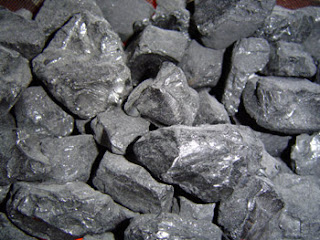Four fifths of the worlds energy consumption relies on non-renewable fossil fuels such as coal, oil and natural gas. At the present rate of use, gas supplies should last for over 200 years and coal for some 3000 years. Before these run out, however, pollution from their use may devastate our environment unless we change our ways.
 For thousands of years people have heated and illuminated their homes with fire. Some burn coal while others, particularly in the developing countries, burn wood, peat and animal dung. All these fuels provide heat, but wood can be replaced by growing mature trees, whilst coal cannot be manufactured.
For thousands of years people have heated and illuminated their homes with fire. Some burn coal while others, particularly in the developing countries, burn wood, peat and animal dung. All these fuels provide heat, but wood can be replaced by growing mature trees, whilst coal cannot be manufactured.
Coal, produced by the effect of pressure and heat on swamp trees over a period of many years is an example of a fossil fuel. Oil and gas are also fossil fuels. Oil was formed from small plants and animals which died in the ancient seas. they were buried by what would become rock; as with coal, pressure, heat and time have slowly turned their bodies into oil and gas.
In the late 1970s and early 80's the overriding fear was that our existing coal and oil stocks would run out, particularly with a world population doubling every 20 years, and increasing demand from the less developed countries.
Today the threat is perceived differently. Many scientists fear that the pollution from coal, oil and gas will increase the effects of acid rain, global warming and depletion of the ozone layer. If these polluting processes continue they will cause irreparable damage to the planet, long before we run out of energy.
For related articles click onto:
Acid rain and its effect on wildlife
Caring for the coral reefs
Causes of acid rain
Coral reefs and the greenhouse effect
Conserving fossil fuels
Energy saving light bulbs
Fossil Fuels
Fossil fuels: Alternative sources of energy
Keystone species
What is acid rain?
What is fracking?
What is global warming?
What is the greenhouse effect?
What is the difference between energy efficient light bulbs and traditional light bulbs?
What is the difference between neon and fluorescent light?


No comments:
Post a Comment